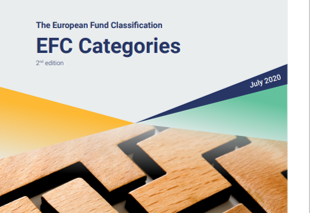EU Fund regulation
The EU fund product landscape is deep, diverse and dynamic. Since the birth of the UCITS framework in 1985, European institutions have progressively refined it into a global “gold standard”, one that successfully balances strict regulatory requirements with the flexibility required by manager to meet evolving client demands. The successful evolution of UCITS was followed by the creation of alternative investment funds (AIFs) under the 2011 AIFM Directive, adding a second important pillar to EU fund/manager regulation. Building on this second pillar are further ambitious EU fund products, such as EUSEFs, EUVECAs and ELTIFs. EFAMA has helped guide all of these key regulatory developments, informing policymakers and regulators on their main merits and drawbacks, while also keeping a close eye on their respective review initiatives.
EFAMA strongly supports a fundamental review to the ELTIF regime, in view of broadening its eligible investment universe and adapting it to better meet retail investor needs. We are also closely monitoring the review of the AIFM Directive from a product regulation standpoint, including possible spillover effects on the UCITS Directive requirements. Further work involves keeping pace with relevant ESMA initiatives, such as the work around the Common Supervisory Action on costs and fees for UCITS.
EFAMA's response to ESMA's CP on Implementing technical Standards under Regulation (EU) 2019/1156
Counterparty and liquidity risks in ETFs - EFAMA response to ECB
Our comment paper confutes the ECB study’s main findings by focusing on its two core areas, namely
liquidity and counterparty risks inherent to the structure and functioning of ETFs. A final section
considers the merits of further regulatory action addressed at the European ETF industry.
EFAMA’s comments on ESMA’s CP on Draft regulatory technical standards under Article 25 of ELTIF Regulation
EFAMA: No need for fundamental reform of EU Money Market Funds Regulation
The European Fund and Asset Management Association (EFAMA) has today published its response to the ESMA consultation on the legislative review of the EU Money Market Fund Regulation (MMFR).
3 questions to Miranda Seath on the European fund classification
Q #1 What is the European Fund Classification (EFC) and why is it different from other classifications?
The mission at the heart of our work on the European Fund Classification scheme is to help investors, and the wider European funds industry, to find and compare similar fund peer groups in a meaningful way. This mission is particularly relevant in an era of rising cross-border fund sales because the EFC enables investors and their advisers to compare funds across different European jurisdictions consistently.
EFAMA Annual Review 2020-2021
It gives me great pleasure to provide you with an overview of our activities since our Ordinary General Meeting of last year.
EFAMA Market Insights | Issue #2 | MMFs in Europe | State of Play
The growth in MMF net assets occurred against the backdrop of resolute actions by governments and monetary authorities
across the world to mitigate the impact of the Covid-19 crisis.
Household Participation in Capital Markets - Country Statistical Profiles
The European Fund Classification - EFC Categories Report, 2nd ed.
The European Fund Classification (EFC) is a pan-European classification system of investment funds, which is maintained by a Task Force of EFAMA.

































